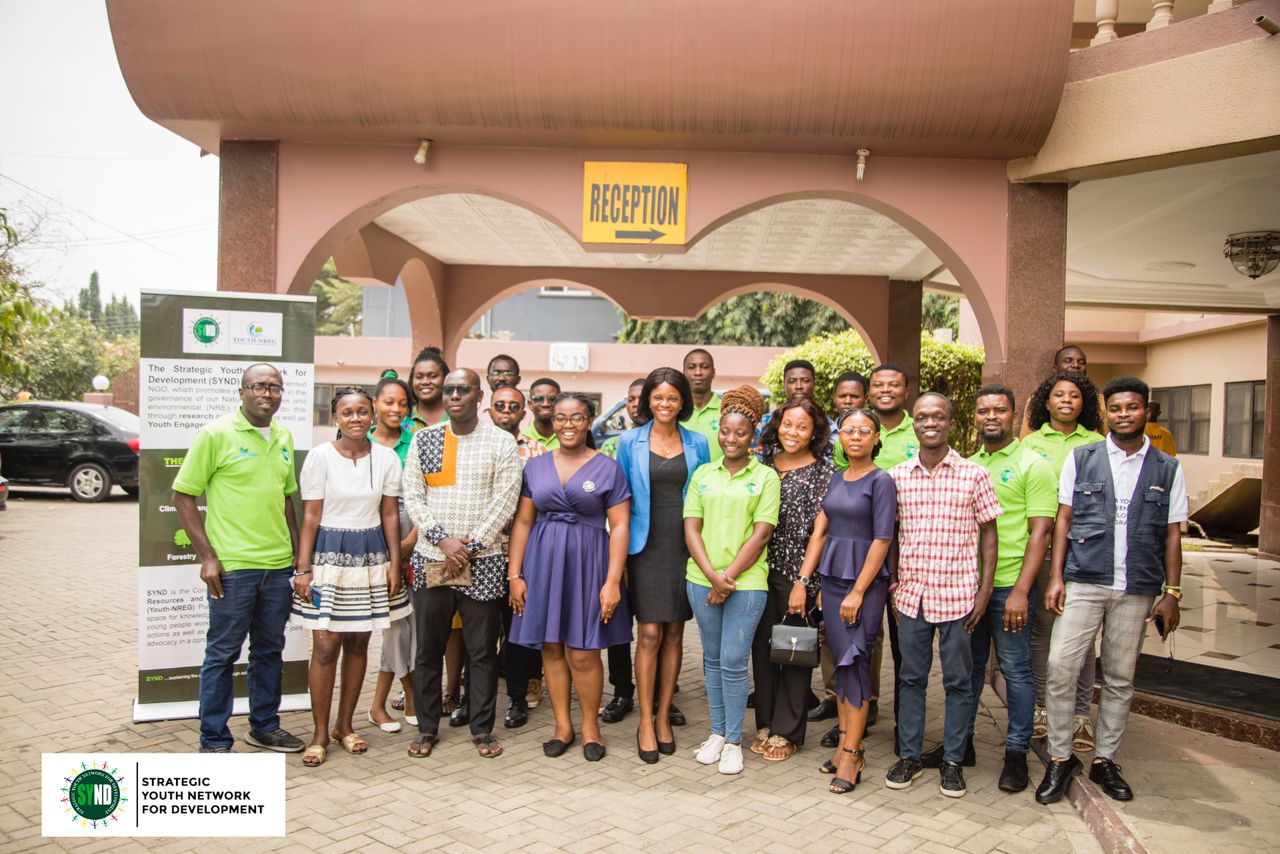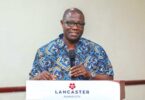
Group picture of media personnel at the SYND Media Engagement
Story by: Ishmael Barfi
Media, according to one of the non-state actor in the climate change space, Strategic Youth Network for Development (SYND) needs to be engaged, equipped and tasked to report stories related to bank investments that are negatively affecting environment especially biodiversity.
To them, the media can not be sidelined in the efforts to create public awareness while engaging banks in Ghana through the Bank of Ghana and other key state and non-state actors on the need for banks to fund environmental sustainability projects.
The Banks and Biodiversity No Go Policy is an active campaign plan of Strategic Youth Network for Development (SYND) in partnership with Friends of the Earth (FoE) US.
The policy also explains how financial institutions play a natural role in “screening out” high risk, low quality investment proposals, therefore, financial flow should be limited in or near sensitive or inherently controversial areas.
Speaking at a Media Engagement organised by the Biodiversity Team of SYND, the Focal Point lead, Ms. Gifty ELIKPLIM Agbenyefia explained that, for the Biodiversity No Go policy to yield results, the ‘watchdog’ of the society, the media can not be left out of the process.

Focal Point Lead for Biodiversity Team SYND, Miss. Gifty agbenyefia speaking at the Media Engagement
The policy she pointed out has eight targeted points that clearly state areas banks are supposed to invest in and then areas of which they are not supposed to invest in.
This she said is as a result of banks over years financing or investing in projects which at the end of the day, have dire consequences on the environment.
Adding “in spite of the significant role banks play in financing these sectors and activities, many financial institutions are yet to develop robust policies or practices to address the biodiversity impacts of their lending”.
“Either they destroy the ecosystem(s) without even realizing that, that is what the project is doing”, he lamented.
Citing mining projects that have being financed by banks with the sole aim of looking at profits, hence their primary goal.
This, Ms. Agbenyefia indicated is destroying numerous ecosystem in the country and if care is not taken, will have dire consequences on the ordinary citizenry who are already experiencing some of these consequences.

Cross Section of media personnel during a group session
“We can talk about the Densu river, we can talk about mangroves, we can talk about wetlands, which are currently becoming housing grants for building projects in our country”, she noted
It is in this regard, she explained the media needs to extend its ‘watchdog’ role in ensuring that, banks don’t finance or invest in projects that destroys the numerous ecosystems such as river bodies, forests among others.
“These are ecosystems that has been in existence for years, so why should we engage in activities that would put you and I at risk”, she questioned.
It is in this regard, the media engagement she noted was to provide an in-depth knowledge and understanding of the eight areas under the ‘banks and the No Go Policy’, hence factual and accurate in their reportage.

Executive COORDINATOR-SYND, Chibeze Ezekiel
“So importantly, they getting the story straight, they getting their facts straight, and they understanding our perspective, so that they see the roles that they can play in achieving the targets and other policies in the Biodiversity space.
However she was quick to say that, sometimes the banks are not aware of how some of their funded projects are destroying the ecosystem but believes that, when the media publishes such stories, it will awaken the banks.
To her, continuous highlighting and hammering on such harmful projects funded by banks would streamline the No Go Policy’ in its agreements to safeguard the ecosystem.
“We want the media to be able to understand our position on the banks and biodiversity global policy. And then populate the idea in that regard”, she emphasized.

One of the media person doing his group presentation
Meanwhile, she revealed that, after engaging some bank last year, “some of them have taken up initiatives to create sustainable decks in their organization though much needs to be done”.
Miss Gifty agbenyefia therefore urged the media to look at the ESG principle as well as the no go policy and see where they can fill in that gap and call out the banks that are not complying.
“At least when you call them out, we can also have a collective and unified front as we advocate for the change that we all want in the environmental space adding that, CSOs in the environmental space cannot do all of these work alone, therefore need the media to amplify all of these”.
Some of the media personnel present at the media engagement pledged to join the fight in ensuring that, banks funds environmental Sustainability projects in the country through their various media channels
Source: www.thenewindependentonline.com








